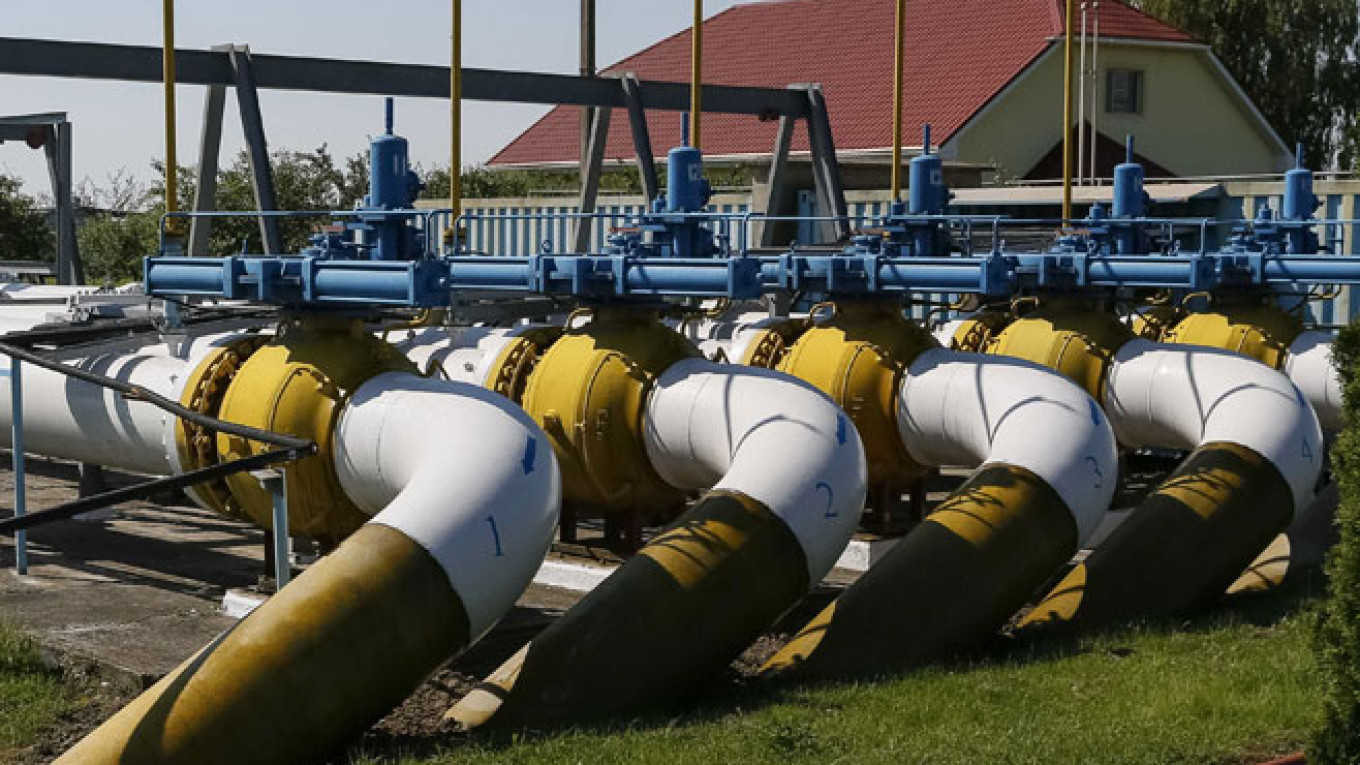The conflict between Gazprom and Ukrainian state energy company Naftogaz continues to escalate as new demands deepen the divide between the two sides, and Kiev's legal nihilism pushes Russia and Europe toward an energy crisis.
Initially, the only point of disagreement was over the price that Ukraine pays for Russian gas. Ukraine had received two discounts that brought the price gas down to $268 per thousand cubic meters, or tcm. Now Ukraine not only wants its discounts back but to rewrite the contract between Gazprom and Naftogaz that has been in force since 2009.
Russia gave Ukraine the first discount in 2010, in return for permission to use naval facilities in Crimea until 2042. The second discount went into effect in December of 2013 following negotiations between former Ukrainian President Viktor Yanukovych and Russian President Vladimir Putin.
Russia cancelled both discounts in April and the price for Naftogaz rose to $485 per tcm. Russia argues that, as the Crimea's naval facilities are now part of Russia, the first discount has been invalidated, while the second discount was cancelled after Yanukovych was ousted in February.
Political considerations, though, make it impossible for Ukraine to recognize this new price — as doing so would indicate that the leasing agreement over its naval bases is no longer in force, and that Kiev consents to the loss of Crimea.
Kiev, of course, is also simply unable to fulfill its financial obligations to Russia. Gazprom has presented Naftogaz with a bill of $11.4 billion for unpaid gas deliveries according to the take-or-pay terms of the agreement, in which Ukraine either pays a set price for gas delivered or pay a penalty for gas they do not take. Naftogaz also owes money to Gazprom for its current bills — $1.45 billion for gas used in November-December 2013.
In order to get out of their financial difficulties, the authorities in Kiev have stated that they want to revise the price of all gas delivered in 2013, reducing the price to $268 per tcm. Russia, meanwhile, insists on the price of approximately $380 per tcm, the average for Europe.
However, besides demanding a lower price, Kiev also wants to eliminate the "take-or-pay" clause and the prohibition on re-exporting Russian gas.
Both conditions appear unrealistic. The "take-or-pay" rule is part of all long-term contracts with Gazprom's European buyers — and even the company's recent contract for gas supplies to China. Allowing Ukraine to re-export Russian gas to Europe under a heavy discount, meanwhile, would allow Ukraine to make a healthy profit at Russia's expense.
The Ukrainian authorities are doing everything they can to avoid fulfilling their previous commitments, despite the complete absence of legal grounds to revise the current gas contract. This eloquently testifies to the dangers of maintaining Ukraine's status as a transit country for Russian gas headed for Europe and the necessity for projects like the South Stream pipeline.
In this situation, all parties must abandon any politicization of the issue and create a constructive development strategy. However, European Commission for Energy Günther Oettinger's statement that all questions related to the South Stream project depend on a resolution to the political crisis in Ukraine do not suggest that the EU has taken a rational position on the subject.
Igor Yushkov is a leading analyst with the National Energy Security Fund.
A Message from The Moscow Times:
Dear readers,
We are facing unprecedented challenges. Russia's Prosecutor General's Office has designated The Moscow Times as an "undesirable" organization, criminalizing our work and putting our staff at risk of prosecution. This follows our earlier unjust labeling as a "foreign agent."
These actions are direct attempts to silence independent journalism in Russia. The authorities claim our work "discredits the decisions of the Russian leadership." We see things differently: we strive to provide accurate, unbiased reporting on Russia.
We, the journalists of The Moscow Times, refuse to be silenced. But to continue our work, we need your help.
Your support, no matter how small, makes a world of difference. If you can, please support us monthly starting from just $2. It's quick to set up, and every contribution makes a significant impact.
By supporting The Moscow Times, you're defending open, independent journalism in the face of repression. Thank you for standing with us.
Remind me later.


